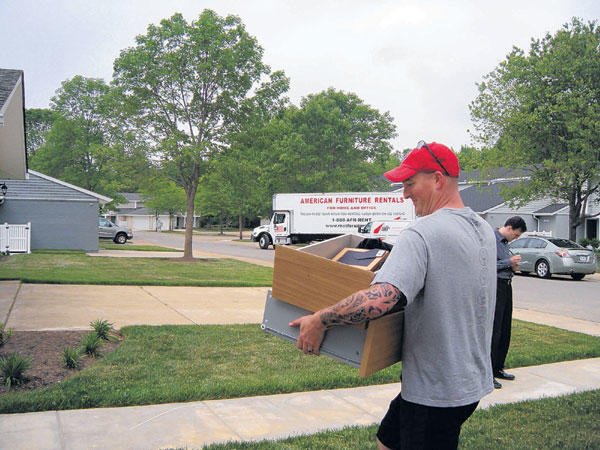The Pentagon is extending its ban on most military and domestic travel, including permanent change of station moves, by nearly two months as COVID-19 cases continue to increase across the force.
Under Secretary for Personnel and Readiness Matthew Donovan told reporters in a Saturday morning call that an order set to take effect Monday will extend the end date for the travel prohibition from May 11 to June 30. However, he added, there will be increased flexibility for exemptions in the new order as the military enters its busy summer PCS season.
Officials were vague about what restrictions will be eased in the new extension order, which remains in draft form and has yet to be signed by Defense Secretary Mark Esper. Donovan said military deployments and redeployments, largely halted in the initial stop-movement order that took effect March 13, will now move forward on a case-by-case basis, pending the discretion of relevant commanders. Travel for recruiting and entry-level training is also approved, he said.
Related: Pentagon Bans Domestic Travel for Troops, Families as Virus Spreads
"Understanding we are approaching our major permanent change of station season, the department will actively provide support options to assist our people," Donovan said. "The new guidance ... allows travelers who are in the middle of temporary duty travel or permanent change of station moves to continue on to their home stations or new duty stations. It also exempts travel for medical reasons."
Waivers will continue to be granted for travel deemed necessary because of personal hardship, humanitarian and mission-related reasons, and those who are pending retirement or military separation will be allowed to travel.
"Also, when it meets operational requirements, we will consider in-place assignment extensions or waivers for PCS moves for service members with school-age dependents to minimize school-year disruptions and education costs," he said.
While full details about which PCS moves will be waivered under the new policy were not available, Donovan noted that the military services would be allowed determine which moves should be given highest priority.
"I think roughly we move 100,000 people during [the summer PCS] season," he said. "Because of the constraints of the coronavirus, that will be phased in and will take a longer period."
Donovan told Military.com that PCS and travel waivers were being granted regularly under the standing guidance; U.S. Transportation Command, he said, had indicated that military moves are taking place at about 30% of the typical rate, and the military services have each said they are at about 10% of their normal move volume.
It's possible the order could be extended further or curtailed prior to June 30 if conditions change, Donovan said; Esper, he said, will formally review the travel ban every 15 days in conjunction with White House and Centers for Disease Control and Prevention guidance and make a determination.
The strict rules on travel imposed in March affected more than 2.8 million uniformed and civilian personnel in the Defense Department, officials have said.
Esper's memo said that all military installations and DoD agencies had to defer all but "mission-essential" travel. Exceptions would have to be approved by a general or flag officer, or a member of the Senior Executive Service, the memo said.
"These exceptions are to be done on a case by case basis, shall be limited in number, and shall be coordinated between the gaining and losing organizations," Esper wrote. "Individuals pending retirement or separation within the next 60 days are exempt."
DoD estimated at the time that about 90,000 service members who were scheduled to deploy or redeploy over the 60 days of the initial stop movement order would be impacted.
The main exceptions allowed were for those who had already initiated travel, and travel by patients and medical providers for purposes of medical treatment for DoD personnel and their families.
Scheduled deployments and redeployments of Navy ships and embarked units were also excepted, provided that they were in transit for at least 14 days and complied with White House and CDC guidelines on protection against coronavirus.
In addition, those whose temporary duty assignments ended while the 60-day stop movement was in effect were also excepted.
Another exception was for the planned withdrawal of troops from Afghanistan. Donovan could not say Saturday whether any units had actually returned from the region since the restrictions went into effect.
Donovan would not rule out that the restrictions could become "a little bit looser" before June 30, depending on the spread of COVID-19.
Many of the decisions on approval for travel, he said, would be up to individual installation commanders.
"We have to make sure the movers are ready" at both ends of the travel arrangement, he said.
-- Hope Hodge Seck can be reached at hope.seck@military.com. Follow her on Twitter at @HopeSeck.
















